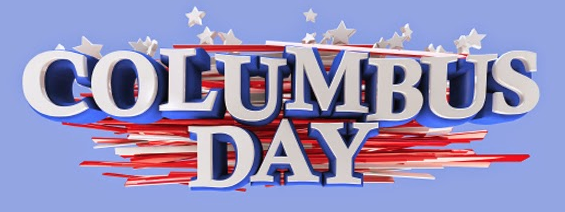The Controversey over Columbus Day

October 21, 2016
Last Friday, many Americans were excited to have a three day weekend as a result of Columbus Day. But, should Columbus be so heroized when he caused so much destruction in the new continent he found? There is a lot of controversy on this topic at the moment.
Columbus Day is a federal holiday that celebrates the day Christopher Columbus landed in the “New World,” which was October 12, 1492. It also is a holiday to recognize our Italian-American heritage. President Franklin D. Roosevelt set Columbus Day as a national holiday in 1937.
In recent years, however, this holiday has been condemned and protested publicly by Indigenous Peoples and other groups because of the harm and torture brought upon the native populations of the area at that time by Columbus and his men. The Europeans not only fought against and killed the natives, but also brought with them many deadly diseases that the native populations had no way of defending themselves against.
Christopher Columbus has been given the common image of a hero; the reason for our colonization of America. However, it is a fact that when Columbus arrived in the Caribbean, he immediately enslaved all of the native people he found, and he even brought some slaves back to Spain with him. Later, while he was Governor of Hispaniola, he imposed inhumane torture methods on the natives as well.
When asked about her opinions on the subject, historian and school librarian Ms. Costello says, “I have mixed feelings. As a historian, Columbus has taken a turn in public opinion, and in recent years he’s actually kind of been villainized, and has kind of a negative reputation. I think that Columbus was a reflection of his time period, and enslaving Native Americans, or enslaving other peoples, that was the belief at that time period, so I find it very hard to criticize or to look down on a historic character with American modern eyes.”
Social Studies Department Chair Mr. Stevens agrees, saying that Columbus was a man of his time. He believes that Columbus Day should be a holiday, but that we should “change the emphasis” and redefine this holiday to celebrating our Italian-American roots rather than Columbus himself. However, he says it is important to “validate explorers like Columbus who have helped our people and our future.”
Ms. Costello’s reason for keeping the holiday is simply that she wants the day off: “I will say, personally though, I’m not ever gonna give up a holiday, so do I want to not make Columbus Day a holiday? No. I want Columbus Day to be a holiday because I want a day off! So, if we’re gonna eliminate Columbus Day, then we have to find another holiday to celebrate, preferably in October.”
Some states and countries like Venezuela are already taking a new spin on this holiday and commemorating this day as a day of remembrance for all of the lives lost in the native resistance against the Europeans. They call it “Day of Indigenous Resistance.” Other names are “Berkeley’s Indigenous Peoples Day”, “South Dakota’s Native American Day” and “Hawaii’s Discoverer’s Day.” Other places in the U.S. host parades centered around Italian-American people, and still others take this opportunity to teach people about Native American culture.
Before it was a national holiday, many communities, especially in New York, organized parades and festivals to celebrate Italian-Americans and Columbus’ landing upon our continent.
It’s been almost 80 years since Columbus Day was made a holiday, and many modern changes have been made to our laws and holidays to become more accepting and fair to different groups of individuals, such at the legalization of same sex marriage, equal pay for men and women, black and hispanic rights, etc. Should we change this holiday to commemorate something more historically correct and impactful to indigenous society? Or does Columbus deserve a day of appreciation for what he did? Let us know your thoughts in the comments below.
